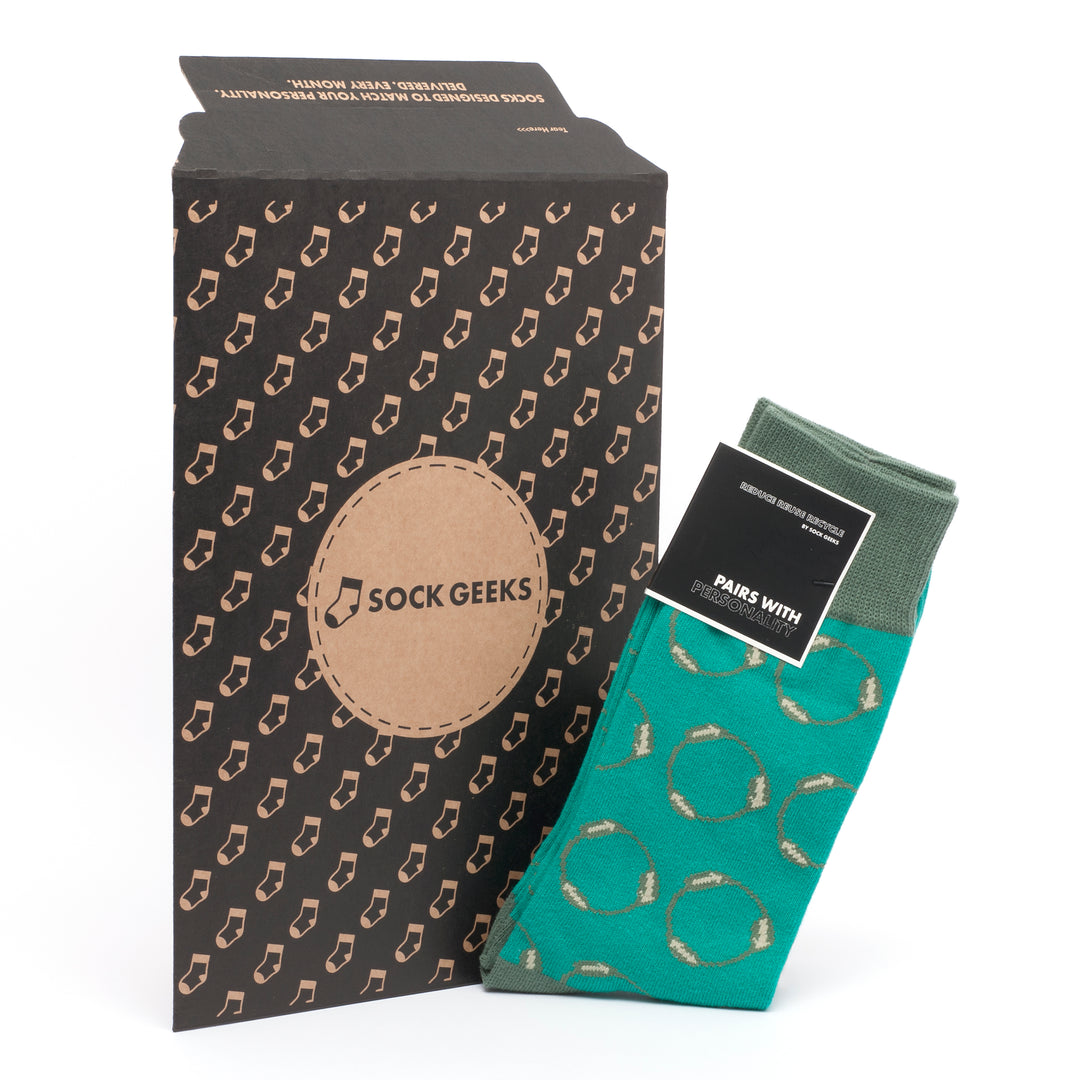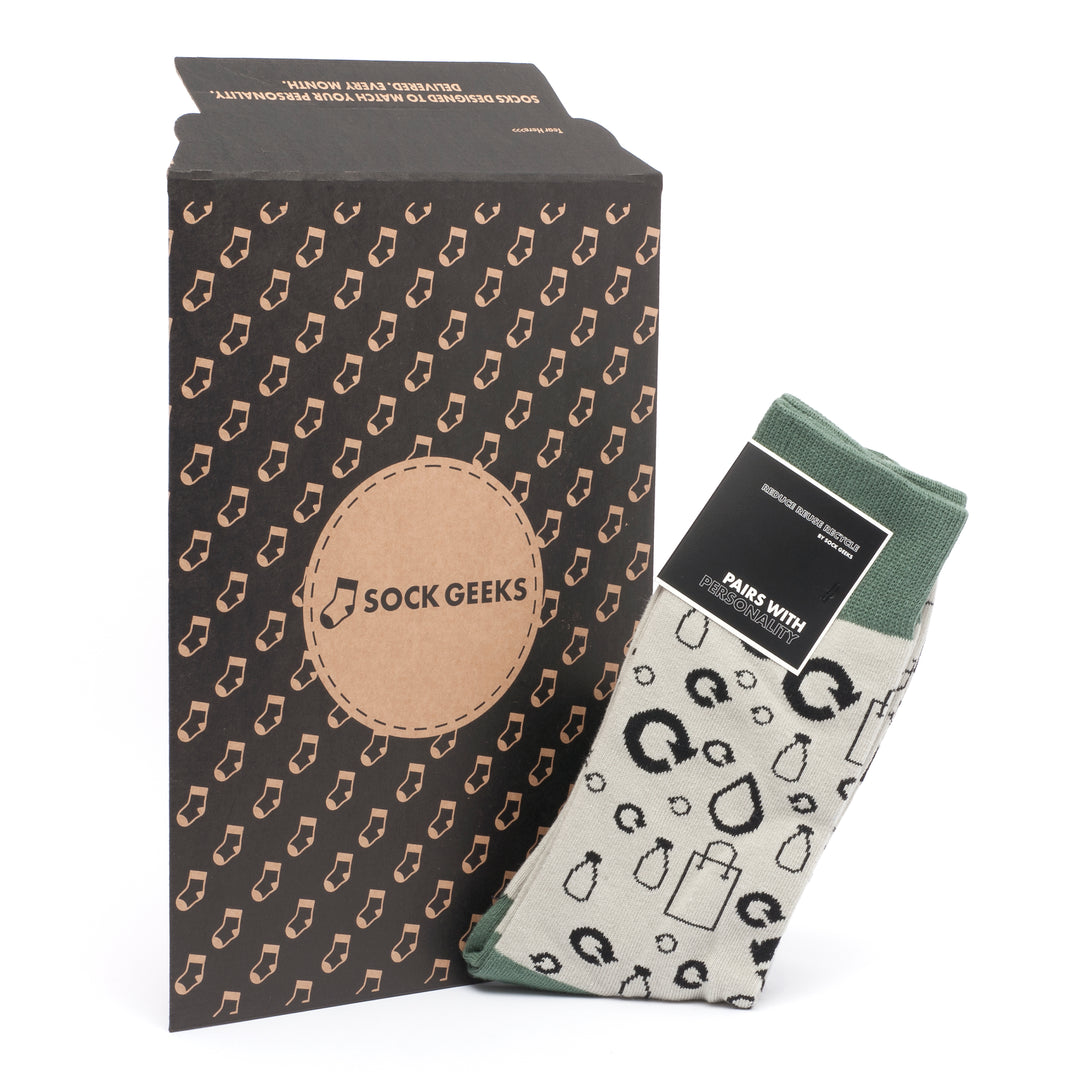Our favourite "bad" Christmas cracker jokes | Sock Geeks Blog
Key Takeaways
-
Christmas cracker jokes are hardly new, with origins in the Victorian period, and they remain a staple of festive celebrations across the globe.
-
The appeal of bad cracker jokes lies in their simple structure, predictability, and universal humour, which make them accessible and enjoyable for people of all ages.
-
Telling bad jokes at Christmas parties is a bonding activity, a source of shared experience, and a frivolous way to relieve seasonal tension.
-
Cultural differences influence the content and style of Christmas cracker jokes, with adaptations in use across cultures and traditions.
-
Timing, context and audience are equally important when telling rude or taboo jokes, too, for everyone to enjoy the festive occasion.
-
Writing your own Christmas cracker jokes fuels creativity and amusement - a little simple punning and testing them on friends guarantees jokes will hit at festive gatherings.
Bad Christmas cracker jokes are short, pun-based jokes found inside Christmas crackers, often shared during festive meals. These jokes are based on puns and childishly bad punchlines, and are a staple of festive traditions across the UK and elsewhere. We all kind of want these jokes to be rubbish and quite cringey, and sharing them has become a form of festive semi-performance. Most jokes use everyday language and reference familiar ideas such as food, animals or holiday traditions. To illustrate what differentiates a Christmas cracker joke as “bad”, the bulk of this blog post will present some true examples and explore their sustained appeal annually.

A Brief History
For generations, Christmas crackers have packed tables and knees with paper hats, mini gifts, and even more infamous dirty Christmas jokes that receive laughter – or groans. Their story starts in Victorian times, when the cracker was more than a Christmas bauble and the jokes inside had an unlikely influence on Christmases, both past and present.

Victorian Origins
Christmas crackers date back to the 1840s with Tom Smith, a London confectioner. He wrapped almond sweets in paper twists to attract more customers. These early crackers, or “bon-bons,” weren’t just for Christmas; they were also used for royal events and votes for women marches. Their original aim was more than just Christmas jokes or sweets; they served as a means of commemorating events with a feeling of collective enjoyment and astonishment.
Smith’s creation gained popularity, particularly as his sons introduced the “snap” feature and added little presents. As crackers evolved, families like Smith’s popularized the tradition with clever marketing and innovations. The later jokes were influenced by Victorian humor, which relished cheeky humor and puns. More than just Christmas cracker jokes, they made fun of lawyers, doctors, mothers-in-law, and celebrities.
Merry-making Victorian families often came together over these jokes, using them as icebreakers and festive mood enhancers. Contemporary newspapers and joke books reveal how thoroughly these jokes penetrated social life, with thousands of puns and comic anecdotes preserved in print, making them a staple of the holiday season.
Modern Groans
Why cracker jokes evolved is an interesting topic, as many of them are straightforward puns or riddles, accessible for all ages. It’s not just about having them laughing; it’s about getting them playing along as well. The contemporary joke does not delve into subjects that were popular in the Victorian age, such as jibes about foreigners or trades, instead walking an easy-going comedic line. Today, some of the most popular jokes include dirty Christmas jokes that aim for a cheeky humor twist.
The quality of the jokes has varied across the years. Previous gags tended to be smart or acerbic, but the current iterations are frequently deliberately naff or obvious. This transformation, from clever to cringeworthy, can partly be attributed to industrialization and the demand for something family-friendly. A classic example is, “Why did the turkey join the band? Because it had the drumsticks,” which remains a favorite Christmas joke.
Social media has facilitated the spread of this humor beyond the dinner table. Online, we now trade the best – or the worst – cracker jokes, sometimes starting viral trends or memes. This has rendered the gags newly relevant, with people happily posting their festive experiences for a worldwide audience, including their favorite Christmas carols.
Christmas festivities today preserve the custom but include new variations. Some crackers feature international jokes, while others employ themes such as science or pop culture. The result is a blend of the vintage and the modern, with corny puns residing alongside wittier jokes or topical references, ensuring that everyone can join in the laughs during the holiday season.
-
Humour in festive gatherings has played several roles: * Ice-breaking introductions between guests.
-
Breaking the ice or staving off awkwardness at family gatherings.
-
Stamp festive fun and laughter.
-
Shared memories – via jokes and poking fun!
-
Educating youngsters in the art of witticism and conviviality.
-
Reflecting shifts in what different generations find amusing.
-
Bringing together people of all backgrounds in a universal experience…
-
Supplying a secure, low-stress means of mocking mundanity.
-
Encouraging innovation through the invention or adaptation of new jokes.
-
Connecting traditions across time and cultures.
-
The Anatomy of Awful
Terrible Christmas cracker jokes, often filled with dirty Christmas jokes and bad puns, are a festive tradition, notorious for their cringeworthy puns and punishing wordplay. These gags don’t often elicit genuine laughter but ignite shared smiles or eye rolls, creating a sense of camaraderie around the table during Christmas time.
-
Overused puns and wordplay that’s only just within the bounds of language
-
Predictable setups and punchlines that anyone can guess
-
Plain English, sometimes at the expense of subtlety or novelty.
-
Repetitive words or phrases that lessen the impact
-
So many Christmas-related terms, and it gets confusing for the unacquainted.
-
Delivery that depended as much upon timing as upon the gag
-
Cheesy, corny tone that is both endearing and awkward
1. The Pun
Puns are at the heart of most Christmas cracker jokes, meant to elicit laughter and a groan in equal measure.
Wordplay in these jokes is frequently contrived, twisting language rules for a punchline. Things like “What do you call a snowman with a six-pack? Abdominal snowman” or “What’s the difference between a bad joke and a bad pun? Night and Day” use puns to humorous effect. Some of the puns are clever but most take the easiest route. A clever pun can enhance a joke, but an inept one can make it flop, with only silence or a polite chortle.
2. The Predictability
Christmas cracker jokes are seldom surprising punchlines.
This is precisely what makes us groan rather than laugh, but there’s comfort in it too. So many of us enjoy the predictability. It’s the kind of joke that succeeds, not for its cleverness, but its resonance. Ironically, these jokes are supposed to be bad, and this mutual knowledge renders them more pleasurable in a group. When we all know the setup, the anticipation can be as humorous as the punchline.
3. The Simplicity
Simple jokes are intelligible to everyone, that’s partly why they operate in large packs.
This simplicity means they appeal across generations and demographics, although the reliance on Christmas terminology can leave some guests perplexed. There’s a very thin line between simplifying things and boring them. Yet a gag like, “What’s elves favourite note-taking system? Elf-abet!” is straightforward yet amusing, while others fall over themselves when they reach for the weird.
4. The Context
Setting matters a lot for these jokes.
Family parties can bring out both the good and the bad in Christmas cracker jokes. It’s Christmas, so people are primed to chuckle, even at terrible gags. Timing is everything, too – a well-placed joke at dinner can work wonders.
5. The Delivery
How a joke is told changes how it’s received.
Facial expressions and tone transmogrify a limp pun into something more enjoyable. Playing to the audience and lingering on the gag may assist. The key advice is to relish the occasion, because the delivery is as much of the custom as the joke itself.
The Psychology of Groans
Groan-worthy Christmas cracker jokes, including some cheeky humor and even dirty Christmas jokes, are a festive tradition. They’re deliberately corny or cliched – and psychologists say this is what ensures they remain part of festive rituals from one year to the next. Groaning at these jokes is not merely a response to bad humor. It’s socially useful, making people feel relaxed and included. Even when the jokes are predictable or simply groan-making, it is the communal reaction to them that renders them unforgettable. Culturally, we respond in our own ways – some laugh, some groan – but almost everyone participates in the experience.
Shared Experience
Telling jokes – even the terrible ones – is what unites everyone around the table. Reading out from a cracker, then groaning or laughing, provides everyone an opportunity to participate.
Anyone is invited, regardless of age or class. Both laughter and groaning are social signals that destroy the walls and draw people in. Other families have their own in-jokes that reappear annually, providing a sense of tradition. Groaning together, not in isolation, reinforces connection, and contributes to the party atmosphere. Psychologists observe that these collective responses bind the group, and the occasion, with levity.
Simple Pleasures
Christmas is stressful, with a whirl of planning and activity. Bad jokes provide that moment to just smile or laugh, even if it’s at the joke.
Nothing like the old familiar comforts. People know what to expect from cracker jokes: puns, wordplay, or groan-worthy punchlines. This predictability may reduce the funniness of the jokes, but it renders the responses more authentic. A laugh, even at a bad joke, releases tension. Amidst the holiday madness, these daft moments are a reprieve.
The Anti-Joke
An anti-joke is one that features a deliberately unfunny punchline, not attempting to be witty or amusing, much like some of the dirty christmas jokes that have gained popularity during the holiday season. In Christmas crackers, anti-jokes turn the punchline into something prosaic, similar to the humor found in a bad christmas joke. For example: “What do you call a snowman in summer? Water.” This unique approach makes these jokes funny – they surprise you and defy the ordinary rhythm of set-up and punchline, generating laughter from shocked bemusement rather than cleverness. Anti-jokes are catching on, particularly among those who enjoy a twist on an old tradition, presenting a fresh way to join in the revelry, rendering even the groan part of the punchline amusing.
Psychological Benefits
-
Builds group unity through shared laughter or groaning
-
Reduces social awkwardness by giving everyone a common reaction
-
Offers a safe way to express playful ridicule
-
Releases tension during busy or stressful holiday times
A Global Tradition?
Christmas cracker jokes have gone global, bringing a mix of dirty Christmas jokes and traditional holiday jokes nestled within colorful crackers into homes and festivities worldwide. Everyone loves them at Christmas, and while there is much doubt about the quality of the jokes, they are part of the holiday spirit. Over the years, nations have modified the tradition, tailoring the humor to local cultures.
British Staple
In Britain, Christmas crackers are more than mere table decorations – they are a Christmas institution that dates back to Tom Smith in the 1840s. For more than 150 years British households have pulled crackers at the table, groaning (or laughing) at the well-worn jokes within.
The jokes have become a British Christmas institution with their unmistakably corny humour. British comedy has traditionally determined cracker joke style, and it features puns and wordplay that’s light, simple and friendly. This tradition has resulted in classics such as, “Why was the turkey at the Christmas party so proud? He was stuffed!” or “What do you get if you cross Santa with a duck? A Christmas quacker. The jokes play to the British palate for light, inoffensive humour, frequently taking aim at domestic banality or pop culture.
Commonwealth Chuckles
Cracker gags aren’t just a British thing, though – the tradition has been adopted by various Commonwealth nations. Crackers are an ubiquitous holiday item in countries such as Canada and Australia. The gags themselves differ — Canadian ones might refer to snow or wildlife. Australian crackers use local slang and summer themes since Christmas there is hot.
This common tradition stems from close historical and cultural connections. Local traditions colour the jokes’ subject matter and presentation. In Australia, say, a standard hoax might go, “Why did the kangaroo cross the road? To see Santa in the shade.” Canadian crackers, by contrast, could include moose or ice hockey puns. Cheesy though the jokes might be, they are to unite, to provoke discussion, to provide some light-hearted season fun.
American Absence
Christmas crackers aren’t as much of a thing in the US. Although the crackers are available in select stores, they have not yet entered American festive tradition. American holiday jokes usually look otherwise, as ornamented Christmas cards, sitcom specials or comic strips.
One explanation for crackers not catching on might be a difference in humour style – American jokes are typically bigger and less reliant on wordplay. There is some appetite for importing crackers to the US, and with globalisation, they could take hold at future festivities.
Cultural Adaptations Table
|
Country |
Style of Joke |
Local Adaptation Example |
|---|---|---|
|
UK |
Wordplay, puns |
“What’s a snowman’s favourite food? Iceburgers.” |
|
Australia |
Summer, wildlife humour |
“What do you call a kangaroo in a Santa hat? A pouch potato.” |
|
Canada |
Winter, animal themes |
“How does a polar bear build its house? Igloos it together.” |
|
Germany |
Varied, often slapstick |
“Why did the Christmas tree go to the barber? It needed a trim.” |
The Rude Joke
Rude Christmas cracker jokes, often filled with cheeky humor, are notable for their sauciness. These jokes feature double entendres and innuendos, bringing vibrancy and humor to the holiday season, though not everyone finds these adult Christmas jokes endearing.
|
What Makes a Christmas Cracker Joke 'Rude' or 'Naughty'? |
Example |
|---|---|
|
Innuendo or double meaning |
"What do snowmen wear on their heads? Ice caps." |
|
Cheeky or suggestive humour |
"Why does Santa go down chimneys? He likes a tight squeeze." |
|
Adult-themed puns |
"What do elves do after school? Their gnome-work." |
|
Playful twist on holiday themes |
"Why was the turkey at the Christmas party? He was stuffed." |
Why Taboo?
It is a taboo joke because it violates an unspoken social convention or addresses topics that would not be raised in the company of men and women. In other cultures, holiday parties often feature family-friendly Christmas jokes. Rude jokes, however, subvert this norm by introducing risqué themes, cheeky puns, or double entendres that might make others blush. The thrill of sharing dirty Christmas jokes can add an unexpected twist to the festive atmosphere.
Society lays down unwritten laws for what is acceptable to utter in the public sphere. These rules determine whether a joke is funny or seditious. At Christmas, families tend to be intergenerational and from mixed backgrounds, so the tolerance for ‘nice’ humor is higher. Yet, for others, the excitement of breaking these taboos is what makes rude jokes enjoyable during the festive season.
Punchline context is all-important. What’s a rude joke between good mates can seem shocking with family. The shock factor or “did they say that out loud?” aspect can make taboo jokes more memorable. Some people giggle at the rudeness, but others may be embarrassed. This response is partly what gives rude jokes their bite, making them a unique part of holiday gatherings.
When It Works
Rude jokes flourish in environments where everyone has the same sense of humour and nothing is ever going to offend anyone. With adults who are acquainted, a cheeky punchline can trigger a round of laughter. Being “in on the joke” creates connections and a sense of fun.
Know your audience! If you’re looking for light banter and are game for a bit of mischief, rude jokes can lighten the mood. A classic example: “Why did Santa’s helper see the doctor? Because he had low ‘elf’ esteem.” Another: “What do you call an elf who sings? A wrapper.” They’re rude, but seldom overstep into actual insult.
When It Fails
Not every audience will accept a blue joke. At mixed gatherings – where ages, cultures or beliefs differ – a rude joke can be counterproductive. Rather than laughter, it can elicit uncomfortable silence (or even upset). What appears clever to one may appear infantile or coarse to another.
Sensitivity reigns supreme. Others, though innocuous for grown-ups, can come off as stilted at the dinner table. For example: “Why does Santa go down chimneys? Because it soot’s him.” This will earn a laugh in one class and a frown in another.
Now and again a joke doesn’t work because the pun is too contrived or the punchline too predictable. What’s a Christmas favourite that’s also a psychiatric disorder? Jingle bells, Jingle bells.” That might not offend, but it’s still a let down.
Craft Your Cracker
Christmas crackers are a festive table tradition, celebrated for their snap, bright hats, and (most importantly) their jokes, including some cheeky humor. Although some complain about the cheesy jokes, most people appreciate their appeal in their straightforwardness and light-heartedness, especially when it comes to dirty Christmas jokes. Cracker jokes began to emerge in the 1920s, adding a playful spin to the custom that started when Tom Smith wrapped sweets in paper in the 1840s. These days, crafting your own crackers can add a creative twist to Christmas, Easter, Halloween, or even a birthday bash. A cheeky joke can get the ball rolling and put everyone at ease. For those keen to give it a go, a simple checklist can help: keep it brief, stick to light themes, test on friends, and above all, enjoy the process. A pre-party brainstorming session can only enhance the fun.
Find a Pun
Puns, naturally, are the bread and butter of Christmas cracker comedy. They’re short, witty puns that typically raise a chuckle – or at the very least, a groan. Good puns, including some cheeky humor, are memorable and reusable year after year, so maintain a list. The sleight of hand is to begin with a word or phrase associated with the season or your audience, then watch how it can be perverted. Online devices, rhymers, or pun generators can assist with ideas. Take this one, for instance: “What do you call a snowman with a six-pack? An abdominal snowman!” It’s based on a straightforward pun that can be applied to virtually any audience. Punning to your audience (not your reviewer!) e.g. Table puns, inside jokes, and local references can inject added appeal. Your list will expand with time, and you can exchange or adapt old favorites and suchlike.
Keep It Simple
Easy jokes are best in crackers, especially when they include some cheeky humor. Most are a mere line or two, reminiscent of good old-fashioned “Dad jokes,” which are brief, easy to pick up on, and require no mental effort to appreciate. For instance, consider the classic, “Why was the turkey at the Christmas party so cocky? Because it was stuffed!” This kind of easy-to-follow joke works for both children and grown-ups, making it a great addition to holiday gatherings. There’s a lot of charm in jokes that don’t try too hard, as they’re fast to read and share, ensuring no one’s left out during the festive season.
Test Your Joke
Road-test your dirty christmas jokes on friends or family beforehand. A short test of the gag can show you whether it works and yields the proper response, be this laughter or a good-natured groan. Feedback might help you tweak the wording or switch out a lame punchline. You could even have a family joke contest at home to find out which christmas jokes work best. This not only assists you in selecting the finest gags, but adds another level of enjoyment to the pre-event.
Encourage Playfulness
Writing cracker jokes is so much fun during the festive season. It’s not just about getting it right; it’s about participating in a centuries-old tradition filled with humor. A brainstorming session may spark new ideas for you, including some cheeky humor or even a dirty Christmas joke to share during holiday gatherings.
Conclusion
Terrible Christmas cracker gags continue resurfacing on tables everywhere. ‘People moan, roll their eyes or guffaw. People say they’re rubbish jokes, but they ignite genuine moments. A quick pun or daft riddle is a great icebreaker, whether it’s a family dinner in London or a party in Sydney. These jokes travel. They elicit a collective nod or a grin, even if the gag is ancient. To maintain the fun, have a go at writing your own joke for next year. Good or bad, a homemade joke can bring new life to it. What’s your favourite (or most cringeworthy) Christmas cracker joke? Join the festive giggle.
Frequently Asked Questions
What makes a Christmas cracker joke "bad"?
What is a 'bad Christmas joke'? These are the classic-style jokes: family-friendly, simple, and easy – if utterly unoriginal, like dirty Christmas jokes.
Why do people groan at Christmas cracker jokes?
You groan at these dirty Christmas jokes because they’re deliberately cheesy or predictable, adding to the holiday spirit.
Are Christmas cracker jokes the same worldwide?
No, Christmas cracker jokes aren’t country-specific. However, many incorporate dirty Christmas jokes or traditional holiday jokes to attract a broader audience, no matter where you live.
Can Christmas cracker jokes be rude?
A few crackers will feature mildly rude Christmas jokes, but generally they’re family-friendly. Always read the cracker packaging if you want to ensure the jokes are suitable for your holiday gatherings.
How can I make my own Christmas cracker jokes?
Write what are essentially very short, simple jokes or puns, including some festive season humor. They should be clear, family-friendly, and perfect for holiday gatherings!
Why are Christmas cracker jokes important at Christmas?
They bring laughter and a shared experience to festivities, especially with dirty Christmas jokes. Even when the jokes are 'bad', they connect people and spark dialogue.
When did Christmas cracker jokes start?
Christmas cracker jokes, often featuring cheeky humor and bad puns, first became popular in the early 20th century as part of an effort to bring fun and laughter to Christmas dinners.




















Leave a comment